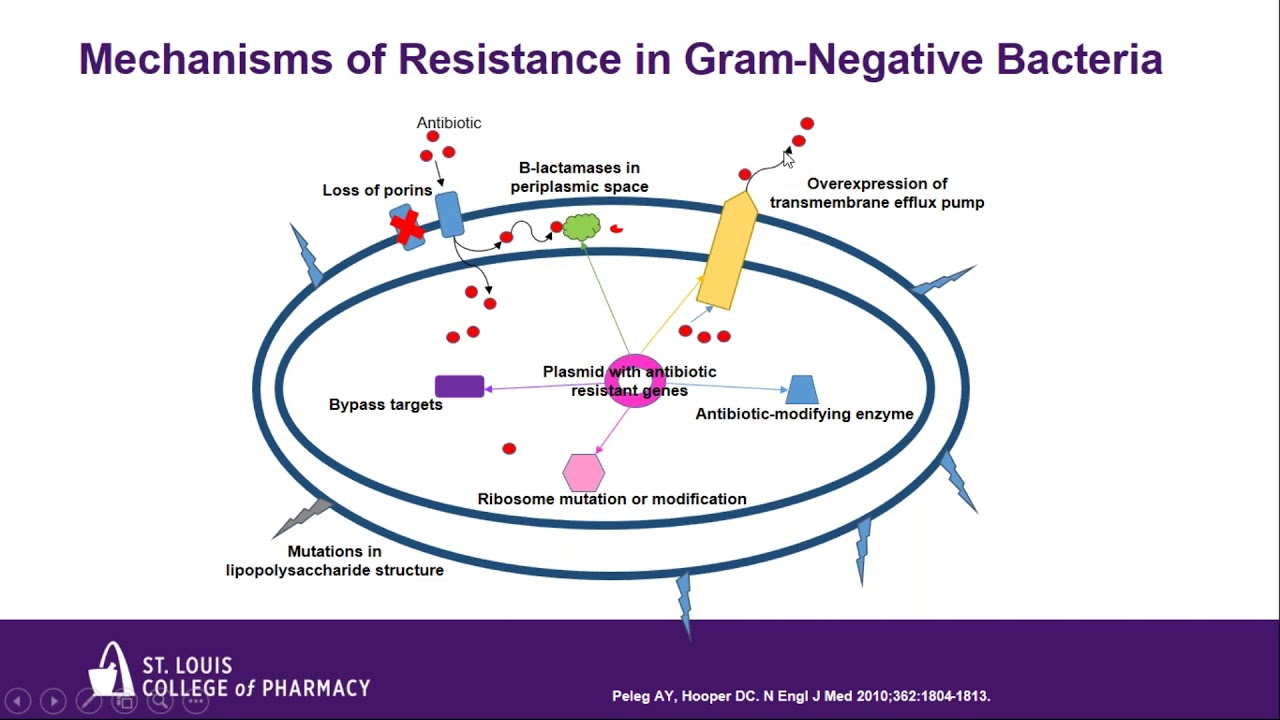
New Antibiotics for Drug-Resistant Infections Revolutionizing Health
In the ongoing battle against antibiotic resistance, the emergence of new antibiotics for drug-resistant infections holds immense promise for public health. As the global crisis of antimicrobial resistance escalates, innovators like Kinvard Bio are pioneering novel treatments that could revolutionize our approach to previously untreatable illnesses. This Harvard startup is leveraging cutting-edge research to develop compounds that target resistant bacteria effectively. Employing strategies that enhance antibacterial innovation, Kinvard Bio aims to restore our arsenal against pathogens that have outsmarted traditional antibiotics. With the stakes as high as over a million lives lost annually to antibiotic-resistant infections, the urgent need for new solutions has never been clearer.
As the threat of resistant pathogens looms larger, understanding alternative approaches to combat these persistent bacteria has become paramount. The rise of novel antimicrobial strategies, focusing on innovative compounds like oxepanoprolinamides, represents a transformative shift in addressing severe infections. Kinvard Bio, a leader in this field, exemplifies the bright prospects for advancements in antibacterial treatments that circumvent established resistance mechanisms. By re-evaluating targets such as the bacterial ribosome, scientists are not just tweaking existing methodologies but creating entirely new therapy classes. This fresh approach promises to invigorate our fight against the relentless tide of drug-resistant infections.
The Urgency of New Antibiotics in the Face of Growing Resistance
Antibiotic resistance is a pressing global health crisis that threatens the efficacy of existing treatments for bacterial infections. The World Health Organization has warned that if current trends continue, we may soon enter an era where common infections could become deadly due to the lack of effective antibiotics. This scenario underlines the critical need for new antibiotics that can combat drug-resistant bacteria, which have developed mechanisms to evade the effects of older drugs. With the alarming statistic of over a million deaths caused by antibiotic-resistant infections in 2019 alone, the search for innovative solutions has never been more urgent.
New antibiotics for drug-resistant infections, particularly those developed by forward-thinking startups like Kinvard Bio, represent a beacon of hope in this battle against microbial foes. These new compounds, inspired by groundbreaking research, are strategically designed to bypass the existing resistance mechanisms that bacteria have developed over time. By focusing on unique binding properties and targeting the bacterial ribosome effectively, these new antibiotics have the potential to restore our ability to fight even the toughest infections, ultimately improving patient outcomes and saving lives.
Innovative Approaches to Combat Antimicrobial Resistance
The landscape of antibacterial innovation is shifting dramatically as companies like Kinvard Bio harness advanced research methodologies to address antibiotic resistance. The use of oxepanoprolinamides—a novel class of antibiotics designed to bind effectively to the bacterial ribosome—exemplifies the innovative approaches being explored today. By enhancing the binding affinities and mechanisms, researchers are optimistic about finding solutions that can work where previous antibiotics have failed. This aligns with a broader trend in chemistry to reevaluate and optimize existing compounds or to synthesize entirely new ones to create treatments that can circumvent resistant strains of bacteria.
Moreover, collaboration between academic institutions and biotech firms has accelerated the discovery and development of these critical new antibiotics. The partnership between Kinvard Bio and Harvard’s Department of Chemistry and Chemical Biology exemplifies how academic research can directly translate into tangible health solutions. With tailored strategies to synthesize and test new compounds, the focus remains not just on creating effective treatments but also on ensuring their accessibility and practical application in clinical settings. As these new medications approach human clinical trials, their success will hinge on the combination of innovative science and strategic funding initiatives aimed at combating antibiotic-resistant infections.
The Role of Synthetic Chemistry in Antibiotic Discovery
Synthetic chemistry is playing a pivotal role in the renaissance of antibiotic discovery. Over the past decade, researchers at the Myers Lab have made significant strides in developing new antibiotics by using advanced synthetic techniques. By re-examining older classes of antibiotics and innovating upon them, scientists can create new variants that show promise against strains of bacteria that current antibiotics can no longer effectively target. The targeted approach of synthetic chemistry not only streamlines the discovery process but also enhances the potential for these compounds to succeed in clinical applications.
Kinvard Bio’s efforts, deriving from these innovative synthetic methods, illustrate how chemistry can inform the battle against antibiotic resistance. The team’s ability to manipulate molecular structures allows them to optimize binding properties that can lead to effective treatments against drug-resistant infections. This focus on the bacterial ribosome underscores the strategic decision to target a clinically validated structure, which has implications not only for efficacy but also for overcoming resistance barriers. As research progresses, the implications of these discoveries could be profound—leading to a new era of antibiotics that are both effective and sustainable.
Collaboration Between Academia and Biotech
The partnership between academia and biotech companies like Kinvard Bio serves as a model for future developments in antimicrobial resistance research. Academic institutions provide the foundational knowledge and innovative research that can drive the creation of groundbreaking treatments, while biotech firms bring the necessary funding and commercial expertise to bring these discoveries to market. This collaboration not only bridges the gap between research and application but also cultivates an environment where cutting-edge science can thrive and lead to real-world solutions.
For instance, Kinvard Bio originated within Harvard’s Myers Lab, where graduate students and faculty engaged in sophisticated synthetic chemistry research aimed at tackling antibiotic resistance. This synergy has not only led to the development of new antibiotics that are uniquely capable of overcoming bacterial resistance but also prepares the next generation of scientists to continue this vital work. By emphasizing the significance of teamwork between researchers and industry, we can accelerate the pathway for new treatments that could save countless lives from drug-resistant infections.
Promising Applications of New Antibiotics
The applications for new antibiotics developed by Kinvard Bio extend beyond simple bacterial infections and into areas with substantial unmet medical needs. With a pipeline focused on conditions such as bacterial pneumonia and complicated urinary tract infections, these new treatments could significantly alter patient care. The dual approach of creating both intravenous and oral formulations ensures that a broader spectrum of infection types can be effectively treated while also aiming to reduce hospital admissions—a critical factor in infection control that minimizes the risk of acquiring additional health complications.
As new antibiotics are designed to combat specific resistant pathogens, the potential for broadened applications is immense. Chronic infections, such as nontuberculous mycobacterial lung disease, represent a challenging area where many existing treatments fail. By addressing these difficult-to-treat infections, Kinvard Bio and similar firms are not only providing hope for patients but also working towards a more robust public health approach to antibiotic resistance. The application of synthetic chemistry, coupled with comprehensive clinical strategies, lays the groundwork for a future where effective treatments are available for infections that currently pose significant threats to global health.
Funding and Support for Antibiotic Innovation
Research and development of antibiotics to combat resistant strains are significantly bolstered by funding initiatives from organizations such as the National Institutes of Health and CARB-X. For Kinvard Bio, receiving substantial grants allowing for the synthesis and testing of new antibiotic compounds is crucial in advancing this science. Such investments underline the public and governmental recognition of the urgency surrounding antibiotic resistance and the need for innovative solutions that can prevent widespread health crises in the future.
Continued funding and support from both public and private sectors are vital in facilitating the growth of innovative firms like Kinvard Bio. Investment from firms specialized in antimicrobial resistance, like Kineticos Life Sciences, illustrates the intersection of academic achievement and commercial viability. This funding ensures that the latest scientific advancements can transition into practical solutions that embody the potential to address some of the most pressing healthcare challenges today.
The Future of Antibacterial Development
Looking ahead, the future of antibacterial development hinges on the ongoing innovation and adaptation to emerging challenges posed by antibiotic resistance. As Kinvard Bio and other companies push forward with their research, there is optimism around the viable application of newly developed antibiotics in clinical practice. Continuous refinement of compounds and innovative treatment strategies will be essential to ensuring these new antibiotics can effectively take on resistant pathogens while also maintaining a low likelihood of resistance development.
Moreover, the success of new antibacterials will largely depend on educating healthcare providers and patients about the appropriate use of these medications. Antibiotic stewardship programs, alongside advancements in antibiotic development, can help preserve the efficacy of these new drugs in the long run. As the landscape of infectious diseases evolves, the commitment to combining sound scientific research with patient education will be crucial in overcoming the multifaceted challenges presented by antibiotic resistance.
Public Health Implications of New Antibiotics
The emergence of new antibiotics by research entities such as Kinvard Bio has significant implications for public health on a global scale. With antibiotic resistance claimed as a leading cause of morbidity and mortality worldwide, these new treatments could drastically change the course of how infections are managed. The effectiveness of these new antibiotics could alleviate pressures on healthcare systems strained by the increasing burden of resistant infections, ultimately resulting in better health outcomes and reduced hospital costs.
Furthermore, the introduction of innovative antibiotics can inspire a renewed trust in antibiotic therapy, encouraging healthcare providers to treat infections with confidence rather than fear of ineffective treatment. This paradigm shift can empower both providers and patients to navigate the complex landscape of bacterial infections, fostering a proactive approach to managing health risks associated with antibiotic resistance. Public health initiatives that prioritize access to these new treatments will be essential in ensuring that communities worldwide can benefit from scientific advancements.
The Importance of Educating Future Scientists
The initiatives by Kinvard Bio emphasize the importance of educating and training the next generation of scientists in addressing the critical challenges posed by antibiotic resistance. By offering opportunities for hands-on research in synthetic chemistry, students are not only gaining invaluable skills but also contributing to groundbreaking work that directly impacts global health. Academic environments that foster innovation and creativity are vital for preparing young scientists to tackle complex health issues, ensuring a pipeline of talent committed to antimicrobial research.
Moreover, instilling a sense of urgency and responsibility among emerging scientists is essential. As they become equipped with the knowledge and tools necessary to innovate, future researchers will be better prepared to conduct impactful studies and develop new antibiotics that can circumvent resistance mechanisms. The collaboration between education, research, and industry is fundamental to nurturing this talent, creating a collective system capable of responding effectively to the escalating crisis of antibiotic resistance.
Frequently Asked Questions
What are Kinvard Bio’s new antibiotics for drug-resistant infections?
Kinvard Bio is developing a new class of antibiotics known as oxepanoprolinamides, which target the bacterial ribosome. These antibiotics are designed to bind more effectively than existing treatments, offering hope in combating drug-resistant infections caused by bacteria.
How do oxepanoprolinamides work against antibiotic resistance?
Oxepanoprolinamides work by binding to the bacterial ribosome in a unique manner. This innovative binding strategy helps them evade the resistance mechanisms that enable drug-resistant bacteria to survive traditional antibiotics, thereby providing a potent new option in the fight against antibiotic resistance.
What is the significance of antibiotic resistance in today’s healthcare?
Antibiotic resistance has become a critical health crisis, contributing to over a million deaths worldwide each year. The emergence of drug-resistant bacteria poses a severe challenge, making the development of new antibiotics like those from Kinvard Bio essential to ensure effective treatment options.
How are Kinvard Bio’s antibiotics different from existing antibiotics?
Kinvard Bio’s antibiotics are different because they represent a new class of drugs that specifically target the bacterial ribosome in a way that existing antibiotics do not. Their unique design aims to circumvent pre-existing resistance, making them a promising solution against drug-resistant infections.
What types of infections could Kinvard Bio’s antibiotics treat?
The new antibiotics being developed by Kinvard Bio are aimed at treating various infections, including chronic respiratory infections, bacterial pneumonia, and complicated urinary tract infections. They target pathogens that are resistant to existing antibiotics, addressing significant unmet medical needs.
What challenges does antibiotic discovery face today?
Antibiotic discovery faces numerous challenges, including a significant decline in the approval of new antibiotic classes and the rapid evolution of antibiotic-resistant bacteria. Innovations from companies like Kinvard Bio are crucial to overcoming these hurdles and providing new treatment avenues.
What role does Kinvard Bio play in addressing the antibiotic resistance crisis?
Kinvard Bio plays a vital role in the antibiotic resistance crisis by focusing on developing innovative antibiotics that target drug-resistant bacteria. Their research is aimed at generating effective treatments that can significantly impact public health and reduce the incidence of severe infections.
How are new antibiotics typically tested before being approved?
New antibiotics undergo several phases of clinical trials designed to assess their safety and effectiveness against bacterial infections. This includes preclinical studies, which have shown promise for Kinvard Bio’s antibiotics against a range of pathogens, followed by rigorous human trials before approval.
Why is the ribosome a target for new antibiotics like those developed by Kinvard Bio?
The ribosome is an important target for antibiotics because it plays a crucial role in protein synthesis in bacteria. By disrupting this process, antibiotics can effectively prevent bacterial growth and proliferation, making it a key focus for the development of new antibacterial innovations.
What funding has Kinvard Bio received to support its research?
Kinvard Bio has received significant funding from organizations like CARB-X and the Blavatnik Biomedical Accelerator, which allows them to advance their research in developing new antibiotics aimed at combating drug-resistant infections.
| Key Point | Details |
|---|---|
| Introduction of Kinvard Bio | Kinvard Bio is a Harvard startup co-founded by Ben Tresco and Kelvin Wu dedicated to developing new antibiotics for drug-resistant infections. |
| Issues with Current Antibiotics | Antibiotic resistance is responsible for over a million deaths annually, with existing antibiotics becoming ineffective due to mechanisms developed by bacteria. |
| Focus of Research | Kinvard Bio focuses on developing oxepanoprolinamides that target bacterial ribosomes, a clinically validated target for antibiotics. |
| Past Antibiotic Developments | The lab’s research on antibiotics has roots dating back to the 1960s, aiming to rethink older antibiotics like lincomycin. |
| Funding and Support | Notable funding from CARB-X and Harvard’s Blavatnik Biomedical Accelerator supports their antibiotic development efforts. |
| Research Applications | Current studies indicate the new antibiotics are effective against various infections, with the potential for broad applications in treating hard-to-treat chronic infections. |
Summary
New antibiotics for drug-resistant infections represent a significant advancement in the fight against antibiotic resistance. Kinvard Bio’s innovative approach to antibiotic development not only aims to create effective treatments for currently resistant infections but also seeks to provide solutions for future healthcare challenges. By targeting bacterial ribosomes with newly designed compounds, this Harvard startup is at the forefront of addressing one of the most pressing health crises of our time, demonstrating the critical need for ongoing innovation in antibiotic research.


